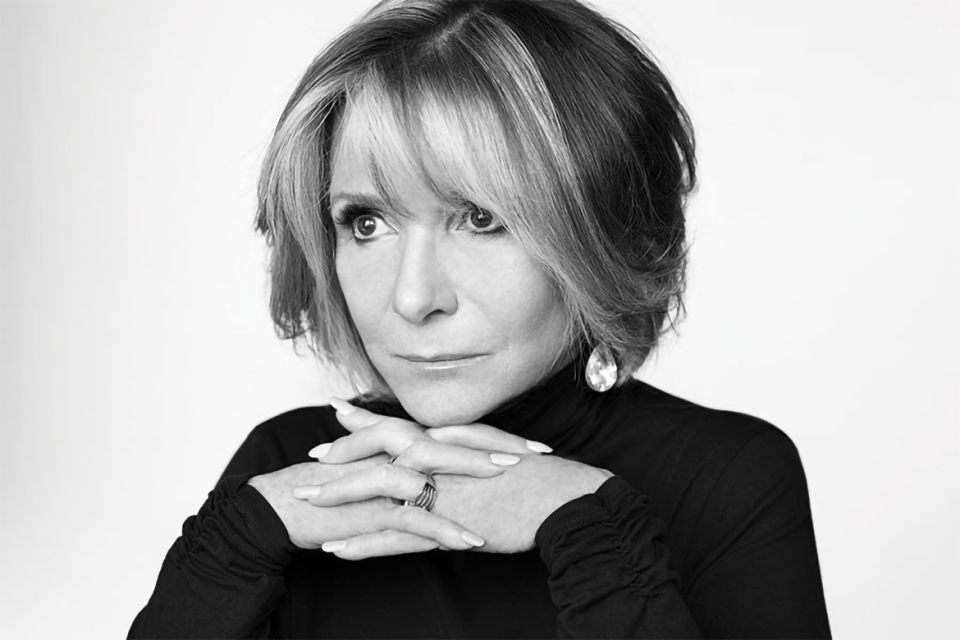As president of HBO Documentary Films and the producer of many Emmy-winning documentaries, Sheila Nevins routinely plumbs the lives of others.
With her new book, You Don’t Look Your Age…and Other Fairy Tales, she is the one divulging intimacies. She recently chatted with emmy contributor Ann Farmer.
Do a lot of people say you don’t look your age?
Well, everybody tells everybody that they don’tlook their age. It’s sort of like, “How are you feeling?” or “Good morning.”
What inspired you to write this book?
It started because I had spent most of my life listening to other people. I never thought anybody really cared too much about what I had to say. I wrote some articles for my friend, Joni Evans, who had a website. Then one day Joni called and said, “Do you want to write a book?” And I thought, well, why not?
You include stories about infidelity, office politics, eating struggles, frenemies and indulging in expensive dental work. What ties everything together?
Life and honesty, shared experiences, shared visions, shared observations and the fact of, you know, suffering along with the giggles.
Is this also an opportunity to explain how it was to be ambitious when it was much more difficult for women to climb the career ladder?
I never wanted to be bored, which may be a better way to put ambition. I was easily bored in everything except television. There was something about the theater that you have in your house, whether you are rich or poor, that I found engaging. And I always wanted to be the one that you turned to.
In your prologue, you suggest that some stories are about you. But others aren’t necessarily. Why the vagueness?
Because I felt there were certain things in my life that were very private. And there were certain things that were not really true to me. Did I sleep with my boss in the ‘60s, like Melissa Van Holdenvas? Maybe. Did I think that was the road to get ahead? Maybe. Did I move from a Cosmo woman to a Ms. woman? Absolutely. And so I use my name in that story. Did I have an abortion in the ‘60s? Yes, and so I called myself Sheila.
The first story, “Facing Facelifts,” you attribute to yourself.
Yes, I’m totally honest about that. I had a facelift.
Why put it smack at the beginning?
Because it was such a secret when I did it. I was told by the doctor, and everyone who had done it, that you were supposed to say you had gone on vacation. But everyone knew I don’t go on that long of a vacation. And then when I came back, I had this crease on the side of my face. And I thought, this is ridiculous — I’m just going to tell everybody. But the irony is, everybody knew.
The second story features a young, ambitious apprentice editor in 1962, who sort of willingly submits to the boss’s advances and subsequently gets a promotion.
But that’s not me. That’s Melissa Van Holdenvas. The lawyer for the publishing house said, “Do you know her?” I said, “Not directly.” “Is there anyone on your floor named Melissa Van Holdenvas?” “No.” “Did you ever know anyone named Melissa Van Holdenvas?” “No, I just made the name up.”
What are you saying with this story? That it was her choice, a necessity or a case of men being sexist pigs?
I was of a different generation. I didn’t know men were pigs. I thought that this pig in my office, which I would later define as many men, was, at least in Melissa’s [ pause ]…. You’re making me confess. The only way that I could stop typing was to do what I could see had to be done.
Do you think times have changed?
I don’t really know. The great thing about getting older is that nobody chases you down the hall anymore. People want you because of your brains.
In another story you describe a boyfriend’s mother lobbing an anti-Semitic comment at you, which proved ultimately motivating.
Well, there are two kinds of mentors. There are those that you admire. And there are those people who help you. Nobody helped me. She helped me because I felt so unworthy. I mean, I really loved this guy. And I read it to him last week. And he said two things: he said, it’s truthful and he was a coward.
Did you find it liberating to write this?
I hope liberating to other people. For my husband and my son, who has Tourette’s, it felt very hard. I worried. And I asked him if I could write it. And then I read it to him.
An audio book is also being released.
I have something like 25 major stars reading this book: Meryl Streep, Ellen Burstyn, Lily Tomlin, Marlo Thomas, Alan Alda, RuPaul, Kathy Bates, Glenn Close, Gloria Steinem, Gloria Vanderbilt….
Since you didn’t share that much about your career successes, is there another book in the offing?
No. I could barely survive this one. I think it’s more revealing than I thought it was.
This article originally appeared in emmy magazine, Issue No. 4, 2017











